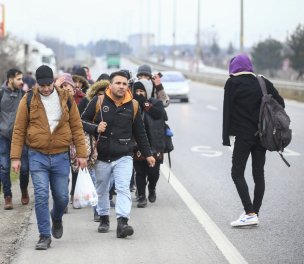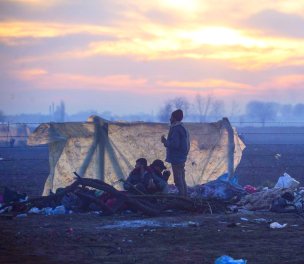Refugees Stuck at Turkey-Greece Border Attacked with Plastic Bullets, Tear Gas
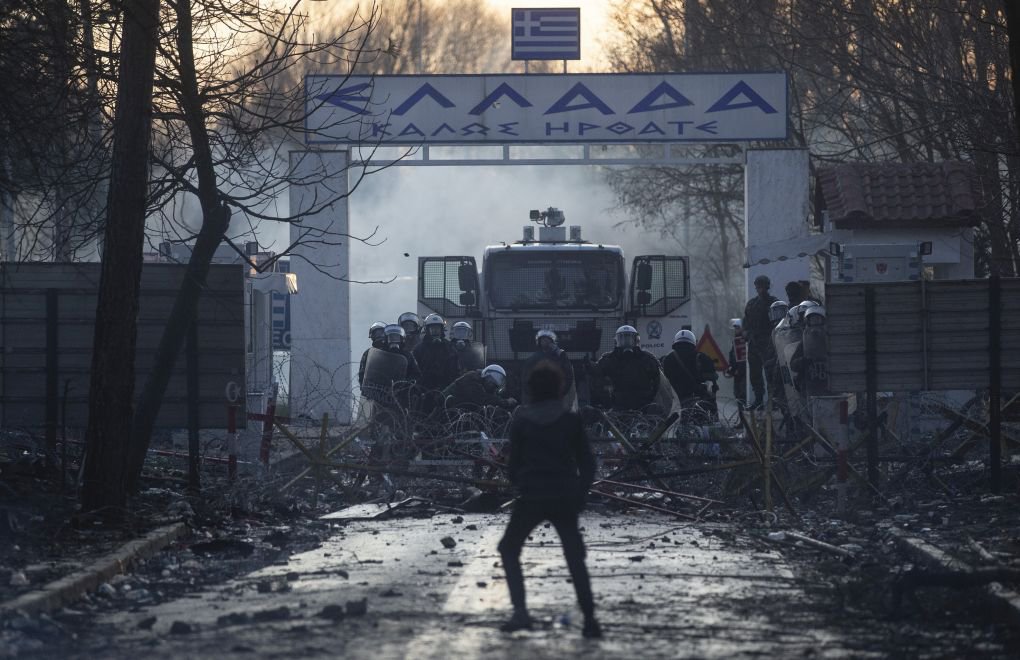
* Photos: Anadolu Agency (AA)
Click to read the article in Turkish / Kurdish
Since Turkey announced that it would no longer try to stop refugees from reaching Europe in the wake of an airstrike that targeted Turkish Armed Forces (TAF) in Syria's Idlib province on February 27, refugees have been leaving Turkey for Greece to reach Europe.
In response to the rising influx of refugees from Turkey, the security forces of Greece have put up razor wire barriers and stationed several police officers behind the barricades to stop them.

Frequently targeting refugees with pressurized water, the security forces have also thrown stun grenades and tear gas at them from time to time. Some refugees were hit by cartridges and wounded during interventions.

The tear gas canisters fired from the Greek side of the border also hit the garden of Turkey's border post.
Attack with plastic bullets
Seeing that a large group of people were attempting to cross the border to Greece, the security forces of the country fired tear gas bombs and plastic bullets at refugees to stop them.

Some refugees managed to cross the razor-wired border to Greece despite the heavy intervention of security forces.
Intervention continued all day long
The intervention of security forces against the refugees also continued at night. They intervened against them with tear gas bombs.

While refugees kept waiting on Turkey-Greece border, they dispersed in panic as a result of the tear gas. While there were several babies among the refugees, they were also affected by the gas. Refugees were treated in the ambulances waiting in the region.
Soylu: Over 100 thousand have left the country
On the other side, Minister of Interior Süleyman Soylu has announced that the number of refugees who have left Turkey following the opening of borders has increased to 100 thousand 577. Sharing a brief message on his Twitter account, Soylu has said, "As of 7.40 p.m., the number of migrants who left our country through Edirne province is 100,577."
Statement by Amnesty International
* Photo: Anadolu Agency Click to read the article in Turkish After refugees have started leaving Turkey for Europe by sea and land, Amnesty International's Deputy Research Director Massimo Moratti has released the following statement about the issue: "What we are seeing now at Turkey's land and sea borders with the EU is that people seeking asylum are once again being used as bargaining chips in a deadly political game, a predictable consequence of the EU-Turkey deal. "EU member states need to do far more to share responsibility for asylum seekers arriving in Turkey, both through financial support and ensuring safe pathways to Europe. "Greece and Bulgaria must ensure access to their territory for people seeking protection and border guards should refrain from excessive use of force against those gathered at the border. They must be allowed to enter through official border crossings, regardless of whether they have valid travel documents. "Countries with external EU borders should keep sufficient, appropriately located, and secure border crossing points open for refugees. The European Commission must also urgently coordinate any support that might be required to Greece and Bulgaria to ensure asylum seekers have access to adequate reception and asylum procedures. European member states shoulder their fair share of responsibility." |
What happened?
Governor of Hatay Rahmi Doğan made a statement on February 28 and announced that 33 soldiers of Turkish Armed Forces (TAF) lost their lives in an airstrike in Syria's Idlib.
Speaking at CNN Turk, ruling Justice and Development Party (AKP) Spokesperson Ömer Çelik said, "Turkey's refugee policy has not changed, but Turkey will no longer be able to hold the refugees."
After Turkey announced that it would not prevent refugees from trying to reach Europe, the refugees in Turkey started to mobilize, heading for the border gates and seas to leave Turkey for Europe. They started to leave Turkey by sea and land, setting off for dangerous journeys.
Lead Spokesperson for the External Affairs of the European Union (EU) Peter Stano made a statement about the issue, reiterating that "the refugee deal with Turkey still stands."
"From our point of view, the EU-Turkey statement, which was basically conceived in order to manage the irregular migration, this deal, this statement still stands and we expect Turkey to uphold its commitment", Stano said and added that "as the world's largest refugee-hosting country, there is no change in Turkey's policy towards refugees and asylum seekers." (TP/SD)





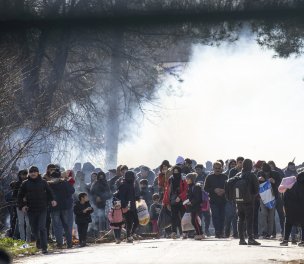
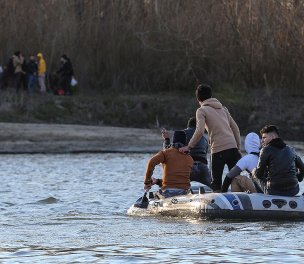
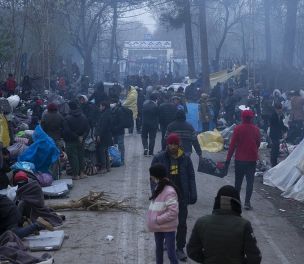
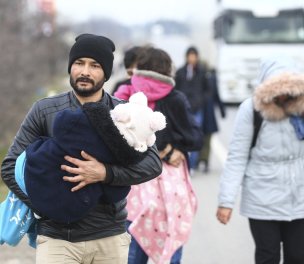
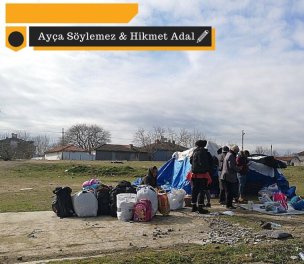
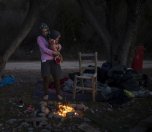


scns.jpg)
